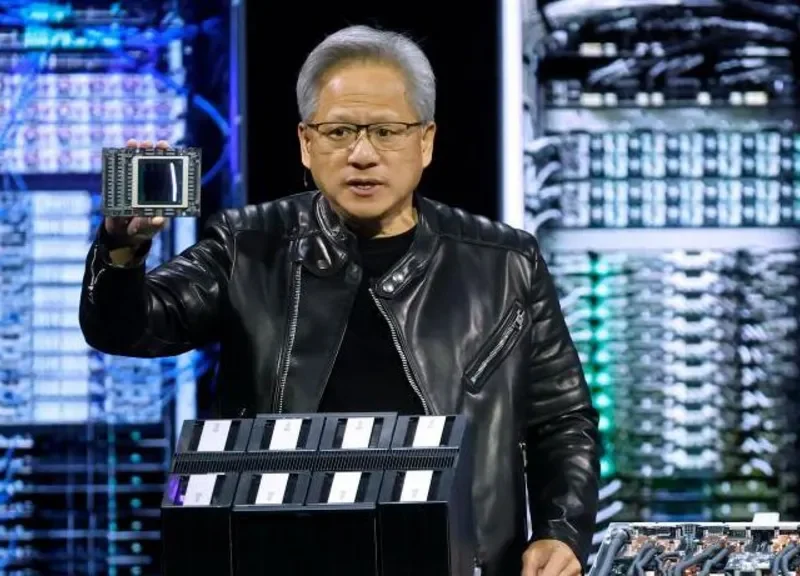Chipmaker Nvidia has projected a $5.5 billion (£4.2 billion) loss after the U.S. government reinforced restrictions on semiconductor exports to China.
The AI-focused tech firm, known for its prominent role in the artificial intelligence boom, now requires export licences to sell its H20 AI chip to China — one of its top-selling products.
These tightened rules come amid growing trade tensions between the U.S. and China, as both nations continue to impose high tariffs on each other’s goods.
Following the announcement, Nvidia’s shares dropped nearly 6% during after-hours trading. On Tuesday, the company revealed it had been informed by U.S. officials the previous week that sales of the H20 chip to China, including Hong Kong, would now require government approval.
Nvidia stated that authorities confirmed the licensing rule would remain in effect indefinitely.
According to Nvidia, U.S. officials said the restriction aims to prevent the chips from being used in or diverted to Chinese supercomputers.
The company chose not to provide further comments when approached by the BBC.
Marc Einstein of Counterpoint Research noted that Nvidia’s estimated financial impact aligns with his projections.
“Although it’s a significant figure, Nvidia is well-positioned to absorb the loss,” he said. “However, this could be part of a broader negotiation strategy. It’s possible we’ll see some policy adjustments or exemptions soon, as these rules affect not only Nvidia but the broader U.S. chip industry.”
Semiconductors remain central to the tech rivalry between the U.S. and China. Former President Donald Trump previously pushed to accelerate domestic chip manufacturing, a process that other regions have spent decades refining.
Nvidia’s AI chips have become a focal point of U.S. export restrictions. Founded in 1993, the company initially developed graphics processing chips for gaming. Well before the AI surge, Nvidia began adding machine learning features to its hardware, positioning itself as a leading player in the AI sector.
Earlier this year, the company’s market value dropped after reports surfaced of DeepSeek — a Chinese AI chatbot built at significantly lower cost — indicating China’s fast-paced tech advancements may have caught the U.S. by surprise.
Nvidia said the projected $5.5 billion loss relates to inventory, purchase agreements, and related reserves tied to the H20 chip.
Rui Ma, founder of the Tech Buzz China podcast, predicted that if these export restrictions continue, the AI chip supply chains between the U.S. and China could fully split.
She added that it’s no longer logical for Chinese customers to rely on U.S.-made chips, particularly with an oversupply of data centers within China.











